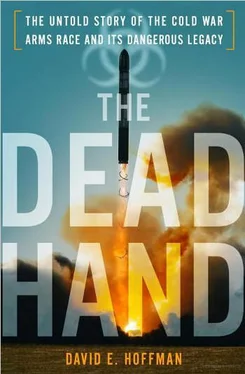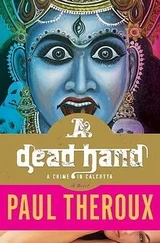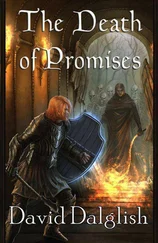42 Katayev, a chart, March 1991.
CHAPTER 18: THE SCIENTISTS
1 Yeltsin’s Address to the Nation, Central Television, Dec. 29, 1991, BBC Summary of World Broadcasts.
2 Leon Aron, Yeltsin: A Revolutionary Life (New York: St. Martin’s Press, 2000), p. 483.
3 Vladimir Gubarev, Chelyabinsk-70 (Moscow: Izdat, 1993); and Lev i Atom: Akademik L. P. Feoktistov: Aftoportpet ha fone vospominaniye [Academician Lev P. Feoktistov: A Self-Portrait and Reminiscences] (Moscow: Voskresenye Press, 2003).
4 Avrorin, the Chelyabinsk director, sent his first e-mail in April. Cochran correspondence files, 1991–1992.
5 James A. Baker III, The Politics of Diplomacy: Revolution, War and Peace, 1989–1992 (New York: G. P. Putnam’s Sons, 1995), pp. 614–616. This account is based on my notes and account in the Washington Post , “Atom Scientists at Ex-Soviet Lab Seek Help; Baker Hears Appeals on Tour of Arms Complex,” Feb. 15, 1992, p. A1; Thomas L. Friedman, “Ex-Soviet Atom Scientists Ask Baker for West’s Help,” New York Times , Feb. 15, 1992, p. 1.
6 “Moscow Science Counselors Meeting,” State Department cable, Jan. 31, 1992.
7 “Comprehensive Report of the Special Advisor to the DCI on Iraq’s WMD,” CIA, Sept. 30, 2004.
8 Glenn E. Schweitzer, who became the first executive director of the science center, said these were his best estimates. Moscow DMZ (Armonk, N.Y.: M. E. Sharpe, 1996), pp. 103–104.
9 This was a tiny amount compared to the $295 billion annual American defense budget that year.
10 The institute developed diagnostic and measuring equipment for underground nuclear tests.
11 Anne M. Harrington, interviews, July 30 and August 11, 2004.
12 In 1996, after about two and a half years of operation, the ISTC estimated that nuclear weapons scientists and engineers received 63 percent of its grants and missile specialists 16 percent. ISTC brochure.
13 Victor Vyshinsky, interview, Oct. 13, 1998.
14 See “Statement of the Director of Central Intelligence Before the Senate Armed Services Committee,” Jan. 22, 1992.
15 Andrei Kolesnikov, “Russian Scientists Accused of Wanting to Help North Korea Become a Nuclear Power,” Moscow News , April 2, 1993. Evegni Tkachenko, TASS, Feb. 10, 1993, cited the local newspaper Chelyabinski Rabochi , which quoted local officials as saying the recruitment was engineered by North Korea to modernize their missile forces. On February 24, Tkachenko quoted Bessarabov as saying there was no work at the institute, where his ruble salary was equivalent to $6 a month. Interview with retired federal security official, Sept. 1, 2004.
16 Michael Dobbs, “Collapse of Soviet Union Proved Boon to Iranian Missile Program,” TWP, Jan. 13, 2002, p. A19; notes, Dobbs interview with Vadim Vorobei, Moscow 2001. A fascinating account of a second Russian missile expert’s sojourn in Tehran is in Yevgenia Albats, “Our Man in Tehran,” Novaya Gazeta , No. 10, pp. 4–5, March 1998. The missile expert was identified only by a pseudonym, but the experience he described is parallel to Vorobei’s.
17 Gharbiyeh set out to obtain advanced missile guidance systems. In November 1994, he appeared at Energomash, a giant Soviet-era rocket engine manufacturer, with a delegation of Iraqis who were disguised as “Jordanian” businessmen. Energomash had built about sixty types of engines over a half century, but in the years after the Soviet collapse, work was scarce, and Energomash was desperate for orders from abroad. Gharbiyeh presented a business card from the “Gharbiyeh Company.” No one at Energomash checked the passports or identity of the businessmen. The visitors outlined technical specifications of the rocket engines they wanted to buy, and on November 18, signed a letter of intent with three Energomash officials to procure them. Victor Sigaev, deputy general director for external economic affairs, and Felix Evmenenko, chief of security for the department for information and international cooperation, NPO Energomash interview, December 1998. They said the deals never went through, the engines were not built and they only learned later that the visitors were from Iraq. Evmenenko said they were given approval in advance from the Russian government to have the initial meeting. The visitors were told that any deal would have to be formally approved by the government, and they never returned, he added.
18 Gharbiyeh purchased the gyroscopes from the Scientific Research Institute of Chemical and Building Machinery in Sergiev Posad, north of Moscow. Using a front company he created, Gharbiyeh negotiated to buy the gyros and other equipment with three deputy directors and the chief accountant at the institute. He had the gyros tested at a Moscow-based company, Mars Rotor. Vladimir Orlov and William C. Potter, “The Mystery of the Sunken Gyros,” Bulletin of the Atomic Scientists , November/December 1998, vol. 54, no. 6. Also, “Ob ugolovnom dele nomer 43” [Re: Criminal Case No. 43], a summary from the Federal Security Service of Russia, 1997, in Russian, author’s possession.
19 “To the Chairman of the Government of the Russian Federation, V. S. Chernomyrdin,” letter from Nechai as well as union and city leaders, Sept. 6, 1996. This account is also drawn from Boris Murashkin, interview, Dec. 3, 1996, Chelyabinsk; “Pominki v Snezhinske” [Wake in Snezhinsk], Grigory Yavlinsky, Obshchaya Gazeta , Nov. 6–13, 1996; “Minatom Poobeshali Prioritetnoye Finansirovaniye” [Minatom Promised Priority Financing], Atompressa, no. 35, vol. 227, October 1996, p. 3; “Proshu Pokhronit Menya V Pyatnitzu” [Please Bury Me on Friday], Vladislav Pisanov, Trud , Nov. 6–14, 1996; and “Russian Turmoil Reaches Nuclear Sanctum; Suicide of Lab Director in ‘Closed City’ Underscores Angst,” David Hoffman, Washington Post , Dec. 22, 1996, p. A29.
1 Hecker’s father, an Austrian who had been drafted into the German army, was lost at the Russian front four months after he was born. He never saw him again. As a young boy in Austria, Hecker had grown up with only dark impressions of Russia, reinforced by his teachers, who returned from the front with grim war stories. At thirteen years old, he emigrated to the United States, and later earned a doctorate in metallurgy and materials from the Case Institute of Technology before going to work at Los Alamos. He rose to become director of the laboratory in 1986. Almost immediately, he was drawn into the arms control debates. In 1988, Hecker and other U.S. scientists carried out a joint nuclear weapons verification experiment with Soviet scientists. The experiments brought the Americans into contact for the first time with Victor Mikhailov, the leading Soviet expert on nuclear testing diagnostics. Hecker, interview, Dec. 9, 2008.
2 See “Russian-American Collaborations to Reduce the Nuclear Danger,” Los Alamos Science , Los Alamos National Laboratory, no. 24, 1996, pp. 1–93; and Steve Coll and David B. Ottaway, “Secret Visits Helped Define 3 Powers’ Ties,” Washington Post , April 11, 1995, p. A1.
3 The International Convention on the Prevention of Marine Pollution by Dumping of Wastes and Other Matter, Dec. 29, 1972, entered into force for the Soviet Union in 1976.
4 At first, he disclosed waste dumping, and later the reactors were revealed in February 1992 in the newspaper Sobesednkik , by Alexander Yemelyanenkov, who represented Arkhangelsk in parliament. Josh Handler, interview, Dec. 19, 2003. Andrei Zolotkov, “On the Dumping of Radioactive Waste at Sea Near Novaya Zemlya,” Greenpeace Nuclear Seas Campaign and Russian Information Agency, Monday, Sept. 23, 1991, Moscow. The author also received recollections from Zolotkov, Oct. 13, 2008; Floriana Fossato, Aug. 6, 2008; John Sprange, Aug. 10, 2008; and Dima Litvinov, Aug. 6, 2008.
Читать дальше












